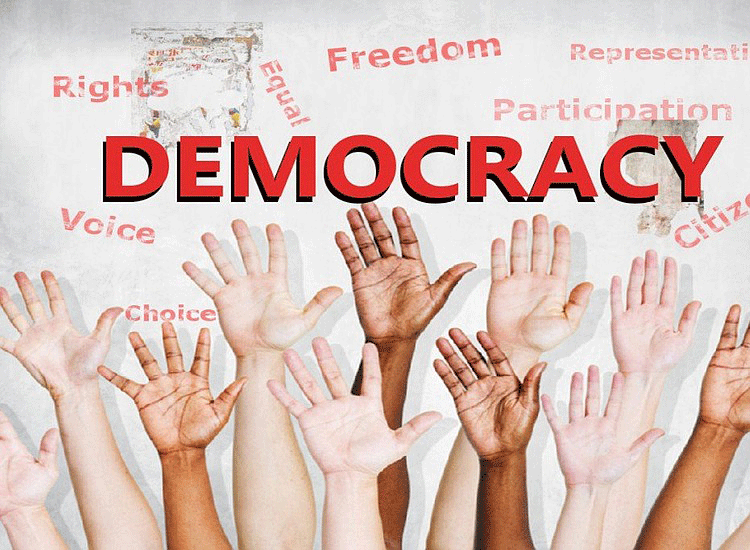
AT its simplest, civil society is the arena in which people come together to pursue the interests they hold in common — not for profit or political power, but because they care enough about something to take collection, (V. Masunungure, 2014)
On November 5, 2021 the Private Voluntary Organisations (PVO) Amendment Bill was published in the Government Gazette. The PVO Amendment Bill is intended to monitor and regulate the operations of non-governmental organisations in Zimbabwe. Various critiques of the Bill have defined it as unconstitutional and a piece of legislation aiming to abolish civil society organisations (CSOs) and their operations in Zimbabwe. The historical perception by the government of Zimbabwe which views NGO’s, particularly those in the human rights and democracy cluster, as anti-establishment and pro-opposition could have propelled the idea behind the PVO Amendment Bill.
While the State has the autonomy to sustain its sovereignty, it should be guided by the principles of democracy which it is subservient to; where civil society is also a part of the body politic and is mandated to play its watchdog role in monitoring public sector performance.
The PVO Bill in summary:
Is said to be in compliance with the Financial Action Task Force (FATF) recommendations to align the country’s laws with recommendation 8 which seeks to ensure that NGOs/PVOs are not misused by terrorist organisations. However, an analysis of the Bill shows that, rather than aligning with FATF recommendations, the government could be using this legislation as an excuse to clamp down on civil society in Zimbabwe and to infringe upon the rights to association, privacy and expression enshrined in the Constitution.
Would have the effect of criminalising the work of CSOs in Zimbabwe by proposing harsh penalties, including jail time of up to one year for NGO registration framework related perceived offences, a new requirement that the Bill seeks to introduce.
Gives the government and the minister responsible for CSOs and trusts excessive power, which will enable him/her to interfere with the operations of these bodies. It further gives the responsible minister power to make an application to the High Court to appoint one or more people of his/her choice as trustees to run the affairs of an organisation for a period not exceeding sixty days
Trusts and common law university associations will also be required to register under the PVO Act, which will mean designated organisations will become unlawful entities unless they register under the new law. As the registrar of PVOs will be reporting to the Office of the President, the threat of de-registration could affect the ability of CSOs to speak out freely.
- Chamisa under fire over US$120K donation
- Mavhunga puts DeMbare into Chibuku quarterfinals
- Pension funds bet on Cabora Bassa oilfields
- Councils defy govt fire tender directive
Keep Reading
Through this excessive involvement of the Executive, it is feared that NGO and CSO funds may be expropriated through provisions of the FATF recommendations. There is a real risk that the expropriation of the funds can be done without due process of the law and without compensation.
It seeks to govern CSOs’ support for political parties, which flies in the face of the constitutionally-protected right to freedom of association. The Bill prohibits PVOs from “political involvement”, which is an overly broad and vague term that has the potential of being misused to target and persecute CSO leaders, pro-democracy activists, human rights defenders and NGOs that may be involved in promoting and protecting civil and political rights guaranteed under the country’s Constitution and major international instruments that Zimbabwe has signed and ratified.
Green Governance Zimbabwe Trust managed to attend the public hearings on the PVO Amendment Bill held in Rusape at Vhengere Hall where the proceedings were disrupted by certain individuals who felt they needed to hinder anyone who made recommendations on certain sections within the Bill. This compromised citizens’ participation in the public hearing and resulted in the public hearing ending prematurely.
In light of this incident that occurred at the public hearings and after thorough inspection of contents of the Bill we recommend that:
Parliament should delay debate on the PVO Amendment Bill until it embarks on a wide-ranging consultative process on the regulation of CSOs, trusts and NGOs. This process should be in adherence of the public hearing guidelines and reflective of the views of a wide spectrum of the Zimbabwean society.
If this Bill is passed into law in its current form it eill cause mayhem not only within civil society, but to the various communities that CSOs have been working with. Most CSOs have demonstrated their ability to foster people-centred development through promoting ownership, inclusivity and participation.
Some organisations have engaged in policy dialogue and sector analysis, conducted independent research, and shared valuable information on sustainable and economic development. Others have provided development assistance or services to communities where government has failed.
Here is a testimony from a villager in Chimanimani: “The most exciting, the most joyful, and certainly the most personally significant part of my life began within the civil society space. Through civil society, I got empowered. I discovered my rights and realised my full potential as a human being and a Zimbabwean citizen whose responsibility is towards the protection and growth of my country. I know I speak for numerous Zimbabweans who are eternally grateful for the wealth of resources and information that they have received through various CSOs.”
- Green Governance Zimbabwe is a non-governmental agency working in Zimbabwe to promote sustainable environmental management











